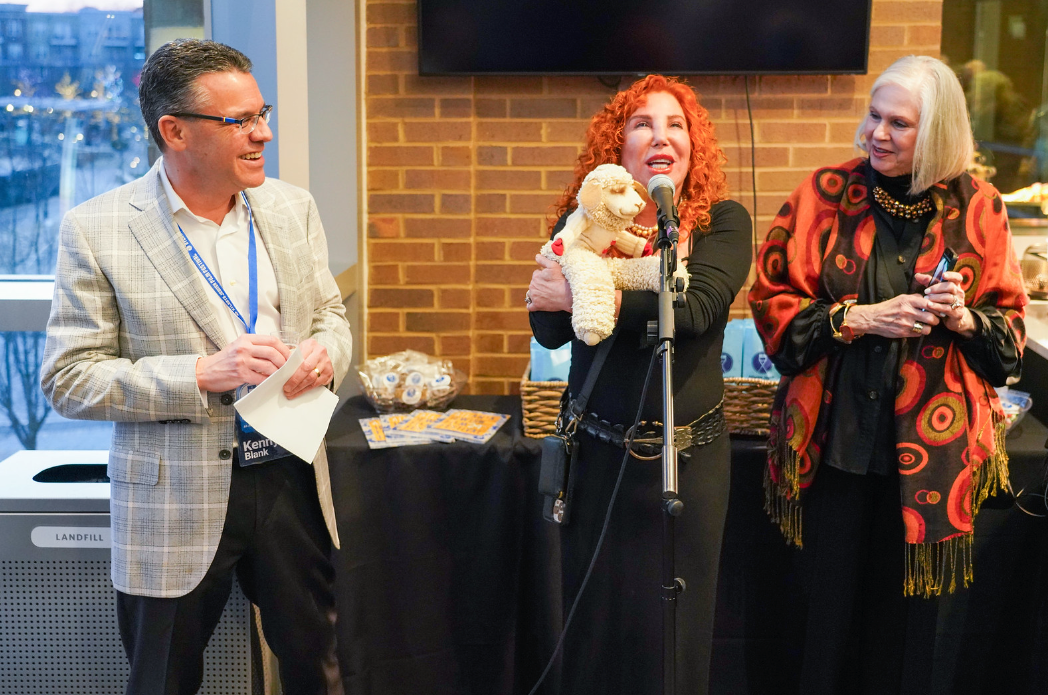The Atlanta Jewish Film Festival wound up its 24th annual edition with a film that echoed an earlier, simpler era in popular entertainment. The film, “Shari and Lamb Chop,” chronicled the life and times of the Jewish-American ventriloquist and puppeteer, Shari Lewis. She started her career in the early days of black and white television with a sidekick that was originally little more than a large sock with a pair of buttons for eyes.
Her big break, which came just over 70 years ago, was a simpler and more innocent time in entertainment. Television had only three national networks when she got her start, and movie going was a strong habit that sometimes meant attending a local movie theater two or three times a week.
Today, those movie theaters that aren’t in reorganization under the bankruptcy laws are just barely hanging on. Only at festivals like Atlanta’s Jewish film extravaganza does the occasion of once, twice, or even daily moviegoing survive.

Shari Lewis and her puppet, Lamb Chop, started her career in an earlier, simpler era of the entertainment business.
This year’s run of 40 feature films and documentaries, and four programs of shorts, once again gave Atlanta audiences the experience that a young Shari Lewis might have remembered from her teens in the 1940s and early 1950s.
For Kenny Blank, whose long run as executive and artistic director of the festival has made him, according to a recently published list, one of the most influential Atlantans, the steady stream of ticket buyers was confirmation that theatergoing was not yet dead in America.
“We saw a really unprecedented surge in demand for tickets. This year we saw really packed movie houses. If you were in the lobby at the theater, there was just a buzz of excitement that reminded me of the magic of the festival before the pandemic. And I think that we are back in a big way, and that people were ready to come together and experience these films in the fest, in the traditional festival setting.”
But that was not to say that the present-day world of entertainment would be easily recognized by Shari Lewis. She died in 1998, just five years after Amazon was founded and a year after Netflix was incorporated and long before the two streaming giants have helped lead the public to the transformation of movie going.

Israeli films made a strong showing at this year’s festival. “Seven Blessings” from Israel won the Jury Award for best narrative film.
So, in a nod to changing tastes, the AJFF added a week or so of 17 encores of its 40 theatrical films for people who didn’t mind missing all the excitement and added perks of a reserved theater seat.
Blank believes they were only experiencing part of what has made the AJFF, over its long history, a not-to-be-missed Atlanta experience.
“I think we found a really great balance and a really strong new model by having the inclusive experience first,” Blank said. “We have a shared collective experience of a theater, with access to the filmmakers, the film artists, the conversation, the Q&A. It’s a unique experience that can only come from being together at the at the movie theater.”
But the importance of theatrical viewing, Blank emphasized, was not just in the added dimension it brings to the appreciation and understanding of the film. The festival setting, through a shared experience, also offers a way audiences can appreciate one another better. This was particularly important this year as the community was roiled by the war in Gaza and the white-hot political temperature in both Israel and the United States.
“I think the events in Israel really sort of amplified the spirit of the film festival, which is about bringing the community together to arrive in a safe space to tackle challenging topics, to have catharsis, to process world events, but also just to have, yeah, that sense of connection to our Jewish community, to one another, to remind us about our shared humanity.”
Seventeen of the 40 films in the festival were either made in Israel or had Israeli themes. Many of the top prize winners at the festival were from the Jewish state. Four of the seven Jury Awards for film artistry went to Israeli films or films with Israel as a background. The best narrative film prize went to the Israeli film, “Seven Blessings,” about the family secrets that sometimes entwine a wedding that brings together two families in Israel.
Even though war may be raging in the outside world, there was, according to Blank, an opportunity at the AJFF this year to reflect in a darkened theater.
“This latest crisis in Israel,” Blank concluded, “was another moment where we had to rise to meet that moment and remind the community that, through film, through storytelling, through uplifting Israeli filmmakers, there was an opportunity to respond in this particular time.”




